Dr. Kyle Martin, Kelsey Heck PA-C, and I will be traveling to Rwanda where we will be providing didactic sessions to five of Rwanda’s district hospitals including Kibagabaga, Nyarugenge, Kibungo, Byumba and Kibuye. These sessions will be designed with the goal of delivering a structured trauma curriculum at five district hospitals in Rwanda to improve trauma capacity.
The curriculum for this project was developed in 2015 as part of an effort to build trauma capacity in Kenya. It has since been delivered in Rwanda at University Teaching Hospital - Butare in 2021. The curriculum will be delivered longitudinally over two years with in-person training sessions every six months. The initial session will include the following topics: Primary/Secondary Survey, Airway Management, Head Injury, Blunt Trauma (Chest/Abdomen/Pelvis), Extremity Injury & Splinting, Burns, and Hemorrhagic Shock. It will also include skills training in airway management, hemorrhage control, cervical spine immobilization, chest tube placement, and ultrasound in trauma (FAST exam). Subsequent sessions will include training on: Pediatric Trauma, Geriatric Trauma, and Trauma in Pregnant Patients. The final training session will provide a refresher of prior teachings along with an OSCE for assessment of knowledge and skill.
Our goal is to build capacity at district-level hospitals in hopes of alleviating resource constraints at the referral hospital level and ensuring proper patient stabilization should they need to be transferred for continuation of care. Trauma educational initiatives in low and middle-income countries have been shown to positively impact provider practices and knowledge as well as morbidity and mortality metrics. In Rwanda, emergency medicine (EM) training programs have been shown to improve patient outcomes in district hospitals. Implementing trauma training courses across district hospitals in Rwanda is integral to the development of a robust trauma system within the country.
This project will take place at five different district hospitals in Rwanda (Kibagabaga, Nyarugenge, Kibungo, Byumba and Kibuye). These hospitals are located in geographically distinct regions of the country. This project will increase knowledge pertaining to trauma care at these five district hospitals located in Rwanda. The knowledge and skills taught during this project can equip health providers at the included district hospitals to reduce disability and death from road traffic crashes and other types of trauma. Notably, injuries and trauma, primarily resulting from road traffic collisions (RTCs) are a major cause of morbidity and mortality worldwide, with over 90% of deaths coming from middle and low-income countries. Rwanda in particular has one of the highest injury incidence rates globally, with injuries (composed mainly of RTCs) causing 22% of deaths in the capital, Kigali, alone in 2012.
The project is a joint effort with the Rwanda Emergency Care Association (RECA), a national professional organization for emergency providers. Members of RECA will assist with the structured didactic sessions, which includes the help of paramedics, nurses, and physicians. The target population for this project (to participate in didactic sessions) is students, nursing staff, and physicians at the district hospitals. There will be approximately 20-25 attendees at each of the training sessions. As such, there will be approximately 100-125 participants in this project. This population and location have been chosen with the goal that after receiving training during this project, participants will be equipped to deliver the structured didactic sessions at additional district hospital sites.
Currently in Rwanda, only tertiary-level hospitals have the capability to provide trauma care as few emergency or surgical services are provided at the district hospitals. Injured patients are often sent to the university hospitals for evaluation and care. Unfortunately, there are only four referral hospitals in the country. These hospitals have the capacity to manage complex trauma cases, but they face resource constraints and are generally inaccessible to patients across the country, leaving patients without access to proper medical care. One of the leading contributors to poor health outcomes after injury are challenges related to providing adequate care in a timely manner. Countries with organized trauma systems, which are generally high-income, have decreased mortality from trauma. As such, it is understood that trauma care improvement in low-income developing nations should focus on strengthening their trauma systems by focusing on prehospital and emergency room care. Adequate emergency care could prevent over 45% of all deaths worldwide.
As aforementioned, this project will take place in collaboration with RECA. Members will participate in delivering the content of the structured didactic sessions. After receiving training during this project, participants will be equipped to deliver the structured didactic sessions at additional district hospital sites. The long-term goal for this project is for every district hospital (approximately 40) in Rwanda to receive training in trauma care.
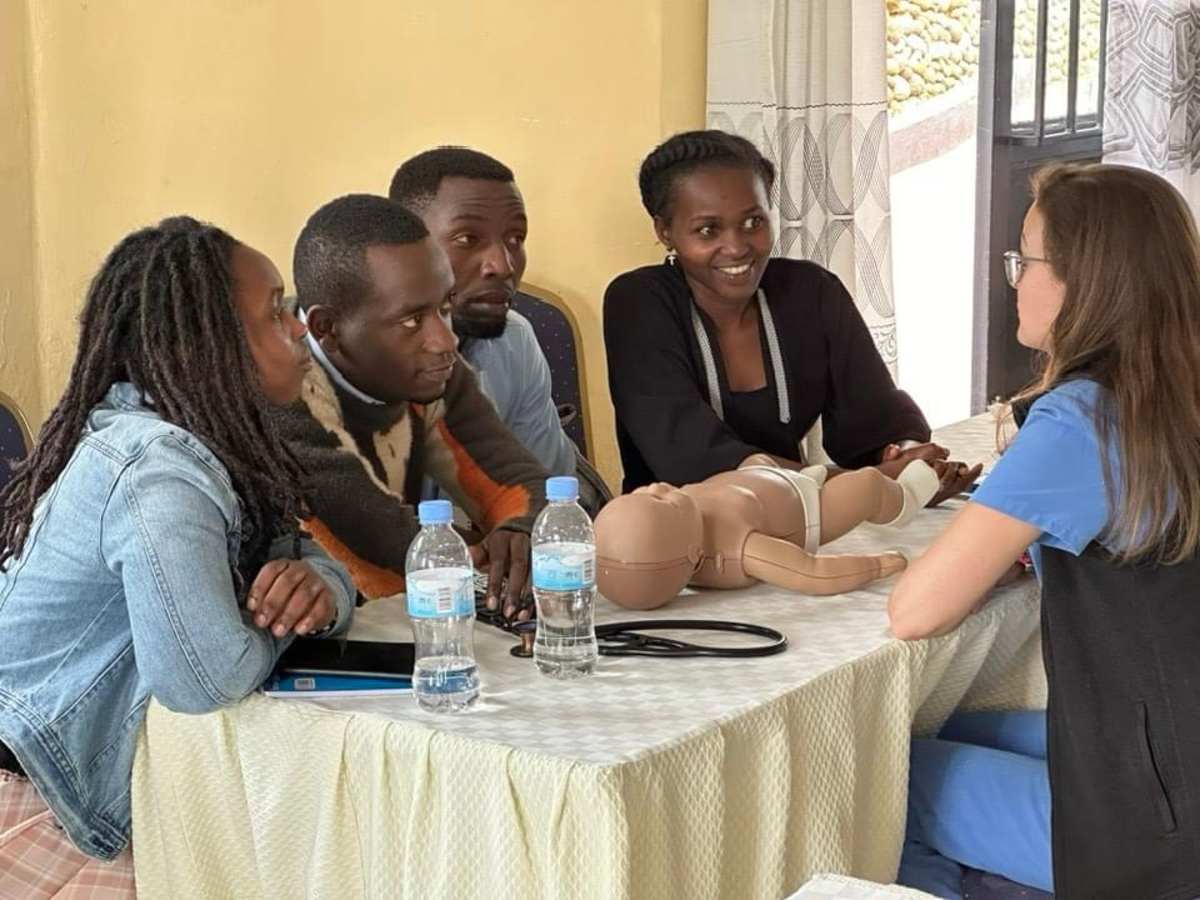

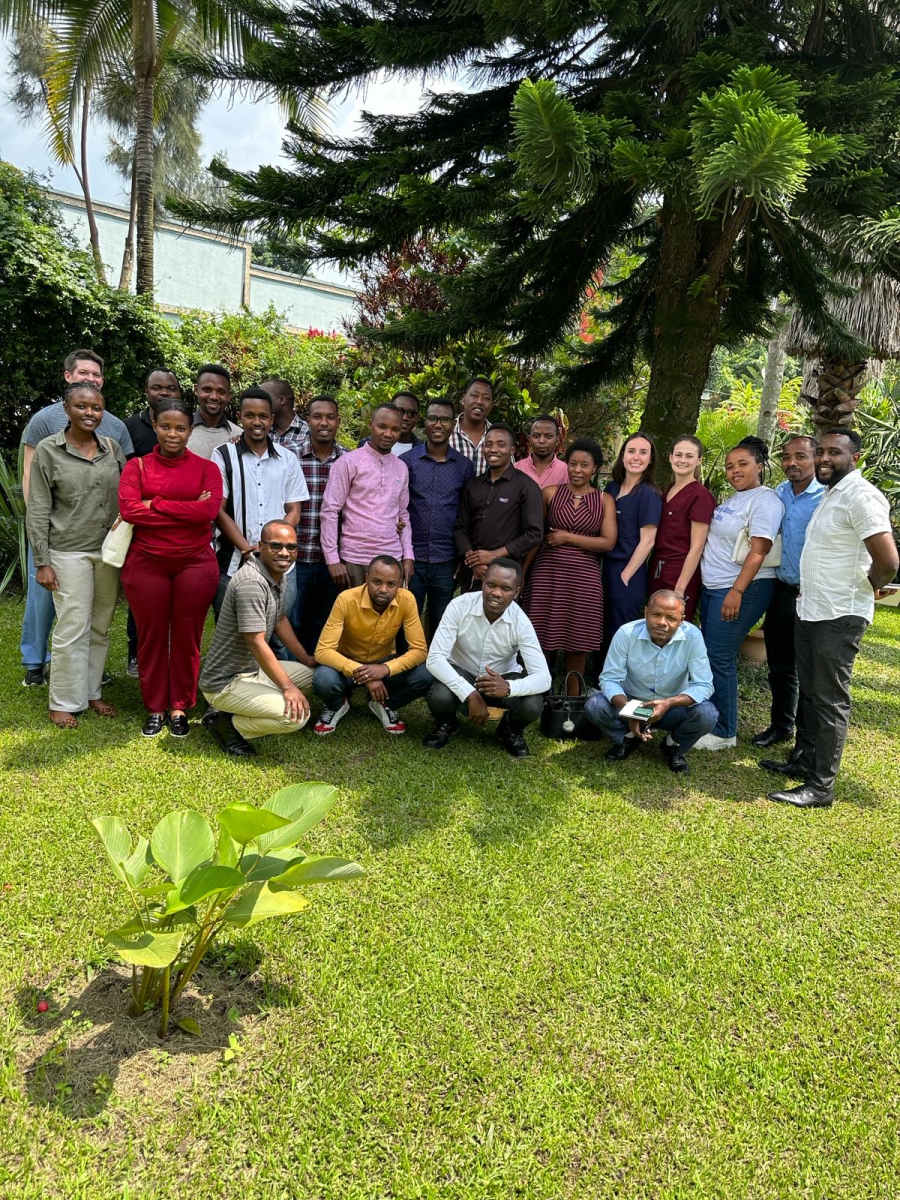


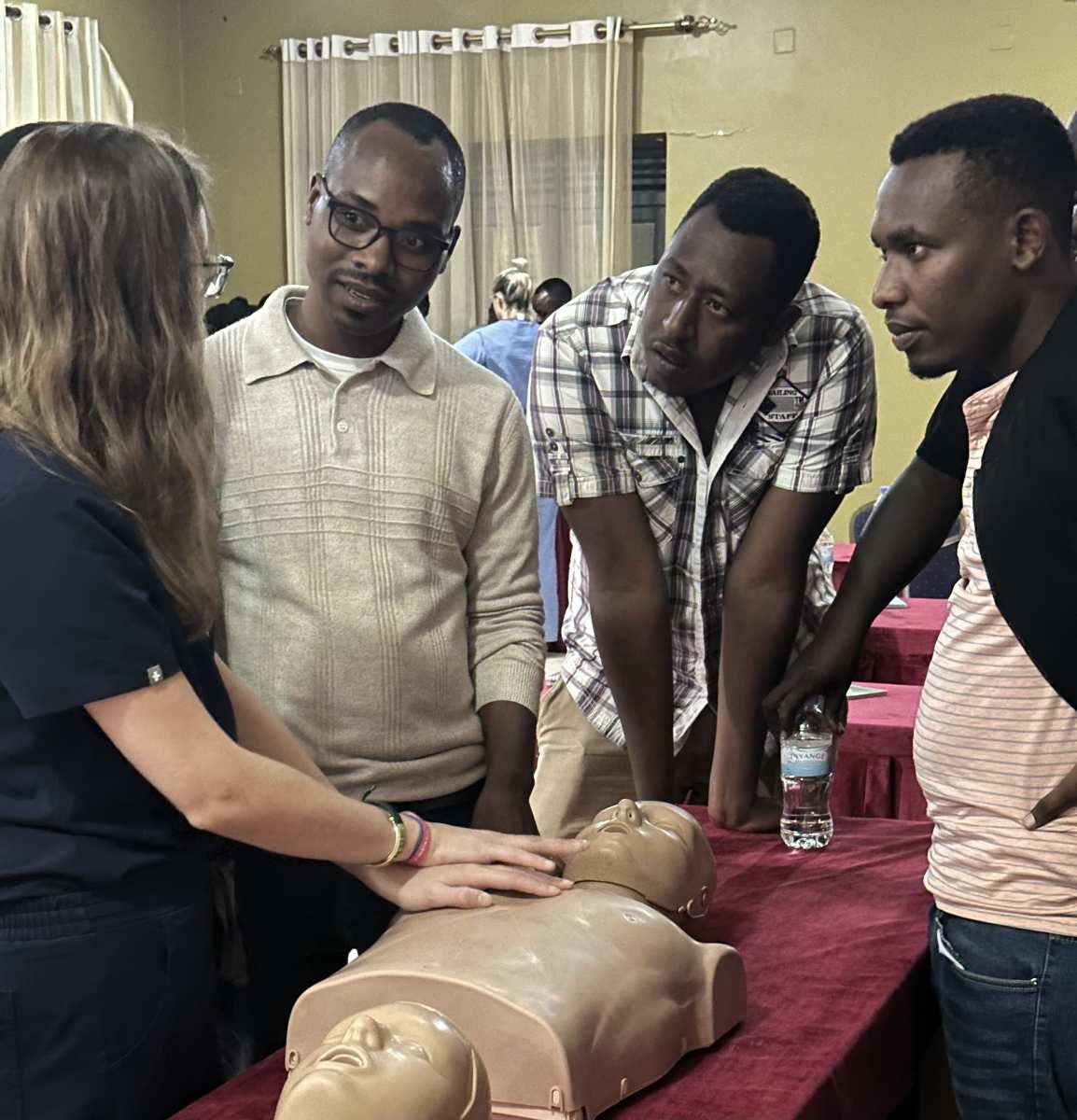

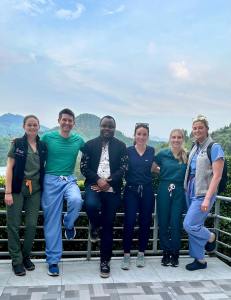

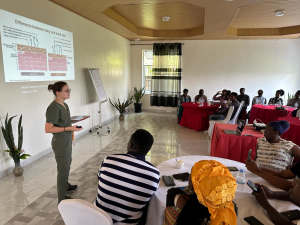
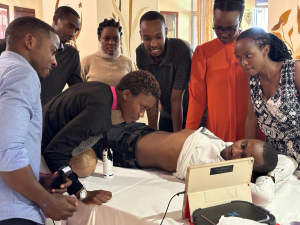

My team embarked on a trip to rural Rwanda to deliver structured didactic trauma sessions to five of Rwanda’s district hospitals including Kibagabaga, Gisenyi, Kibungo, Byumba, and Kibuye. I contributed by providing the pediatric and adult head trauma and cervical spine lecture series as well as the pediatric special considerations lecture. We followed these lectures with group-based skills testing. This included practicing the eFAST exam, pediatric and adult CPR, pediatric and adult primary and secondary survey review, thoracostomy, etc. I enjoyed the skill sessions the most as I had the opportunity to directly communicate with the attendees and answer their questions. Our trip to Gisenyi was the most fulfilling. This group of students were particularly eager to learn and engaged. During their skill session, I was teaching adult CPR. Some students struggled with compression rate and as a group, we had fun singing together and improving compression delivery timing. Overall, it was a great experience and I enjoyed working with the various hospital staff. I look forward to returning to complete the lecture series.